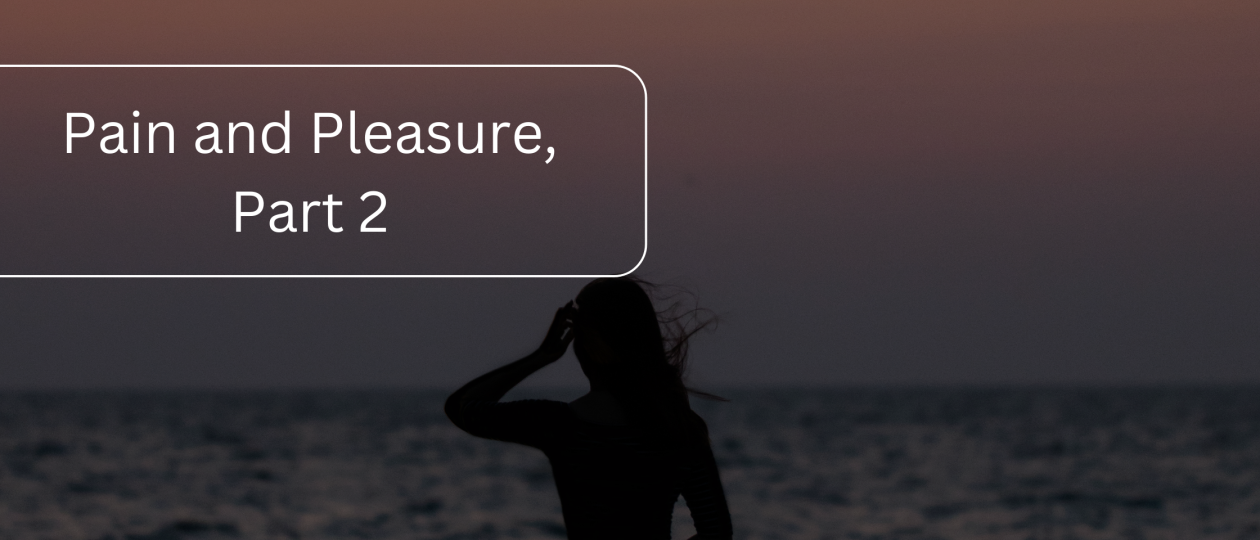Pain and Pleasure, Part 2
Welcome back, everyone! We started a fascinating discussion last week: about cultivating habits of dealing with life’s pain and stress that do not inhibit love. A healthy relationship with life’s pain and pleasure, in other words. Unfortunately, we didn’t have time to get much farther than what it shouldn’t be. It shouldn’t be a constant struggle to do it all right by willpower alone, which inevitably results in a crash. But today I hope to at least begin an answer to the larger question of what we ought to be striving for.
My response to this question cannot really be separated from my personal commitment to Jesus. I will try to put it in terms that anyone can appreciate, but we must begin with the source. The Old Testament presents a god whose faith is based on strict rules, and to whom sin is a crime to be judged. Jesus, however, changes perspective almost completely. He is a healer, come to free us from something that is as much an illness as a debt, if not more so. “For it is not I who do it, but sin living in me,” as Paul says.
So we have two metaphors—and since metaphors are incomplete by definition, we should understand that both still hold vital truths. But the existence of Jesus’ message as a continuance and an evolution of the old way suggest that His is now the more relevant, practical example.
Let us switch gears for a moment. Researchers have found that when a person does something pleasurable, but which they believe is wrong, the brain releases a tidal wave of hormones and chemicals—including BOTH those associated with love, such as oxytocin, endorphins, peptides, and those associated with fear and survival, such as cortisol, adrenaline, etc. They have further found that this chemical rush is nearly impossible to resist, and also highly addictive. I believe this is likely a huge part of why pornography and its addiction is so rampant, just to give one example. This is the sort of “break” that I was discussing last week as the ultimate failure of willpower.
On a psychological level, the great miracle of the cross was not only to take away sin, but to take the fear out of sin. If, as the ancient manuscripts say, the law was given so that sin might increase, then surely the mission of Jesus is to transcend the law, that sin might be reduced. In many ways, you might even say that the great enemy to balance and happiness in our lives is the conflict itself, more than any single victory or defeat.
Where does this leave us? Well, I said last week that our habits must not rest on willpower. This week, I add that they must not rest on fear, even fear of doing wrong. I know of no greater inhibitor of love than fear—and lasting freedom from fear can only come through truth.
Have a blessed, wonderful day!
Dr. Alex Loyd




Add a Comment